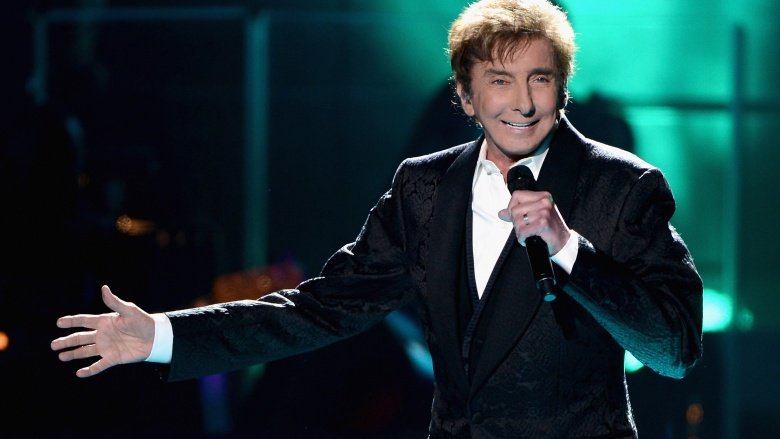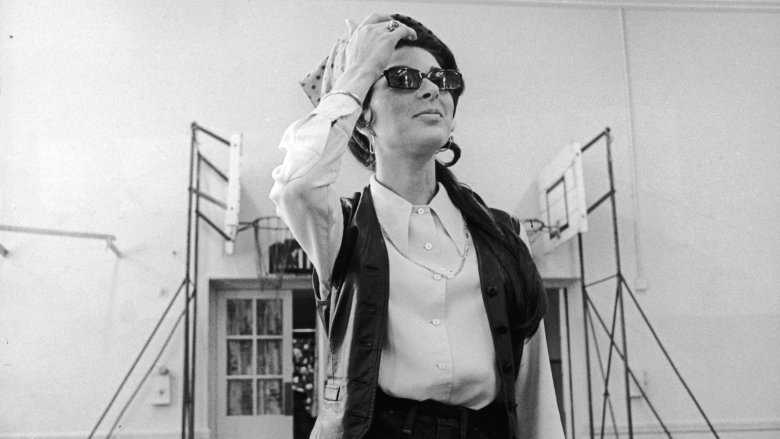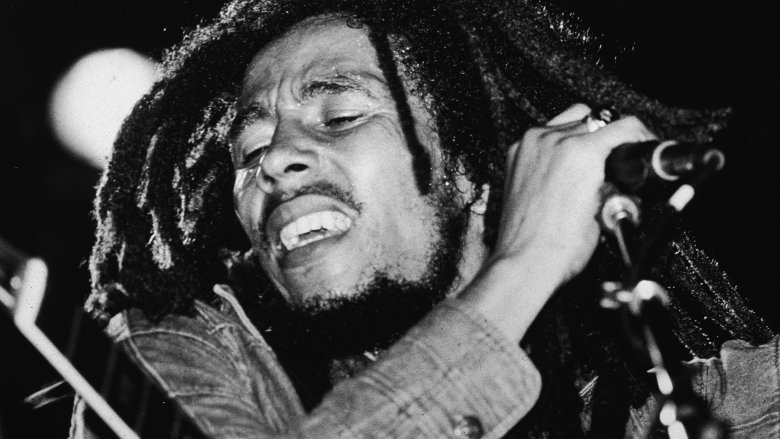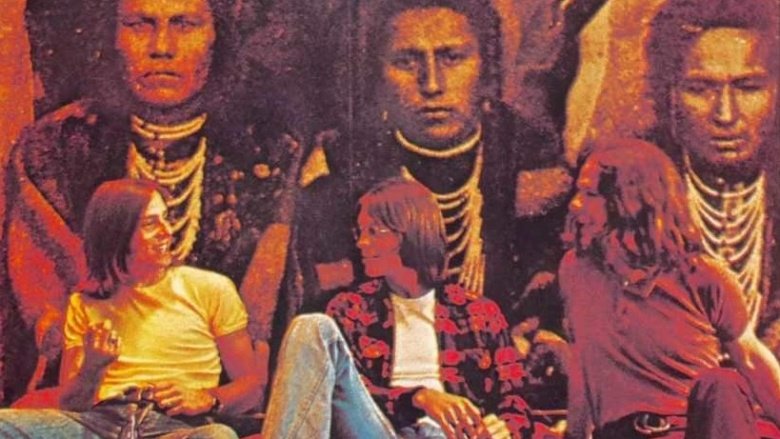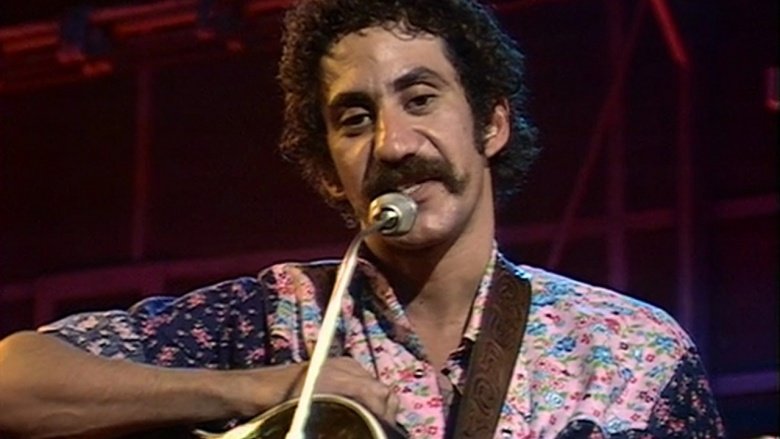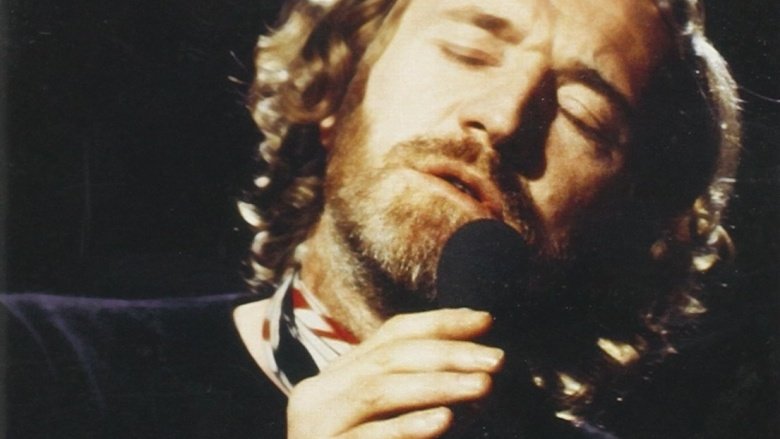Music Secrets We'll Never Know The Answers To
Most song lyrics are pretty cut-and-dry, telling simple tales of love and/or drugs with predictable, clear outcomes for everyone involved. But sometimes, a song refuses to give away all of its secrets, leaving us to sit back and fill in the blanks ourselves. Here's our attempt to pull back the curtain on some classic mysteries of music that the artists aren't bothering to unveil themselves.
'Ode to Billie Joe' - Why did Billie Joe kill himself?
Bobbie Gentry's 1967 opus "Ode To Billie Joe" is the intriguing tale of a boy who killed himself by jumping off a bridge. Wordy as it is, this song leaves us a big unanswered question — why Billie jumped off that bridge in the first place — that Gentry isn't keen to discuss.
A notoriously private person, Gentry typically avoids discussing anything with anyone, including her song. When she does, she offers either no information or conflicting ideas. The 1976 movie Ode To Billie Joe attempted to explain what happened, but the screenwriter's quest to get the truth out of Gentry went nowhere. He claims he asked her about the meaning of the song and that she replied, "I made it up. I don't know what it means." When asked if she knew why Billie killed himself, she simply said, "I have no idea." So the screenwriter made up some malarkey about Billie kissing a man dressed as a woman and feeling bad about it. It's better than nothing, right?
However, when musician Tony Joe White reportedly asked her about it during a tour, she supposedly told him that "Billie Joe got the girl, the narrator, pregnant. But they both were incredibly young and did not know what to do." That's not much of an explanation, plus it might not be true, since she apparently has "no idea" what happened. Ask Gentry if you can find her, but don't expect much more success than anyone else had.
'I Shot The Sheriff' - What did the sheriff symbolize?
At first listen, Bob Marley's "I Shot The Sheriff" is pretty straightforward. A guy admits to shooting a sheriff (but not the deputy, because nobody wants two life sentences), and it's probably some kind of allegory about freedom. But if you actually asked Marley, you'd find out it's probably not that and that he wasn't interested in exposing the truth.
Apparently, when Eric Clapton came to Marley about Claptonizing "Sheriff," he asked what the lyrics meant. Marley gave him the roundabout, claiming (as told in John Masouri's book Wailing Blues: The Story of Bob Marley's Wailers) that "some of them were true and some of them not, but [he] wouldn't confirm which exactly." Of course, he later explained (according to the book Bob Marley: In His Own Words) that the sheriff is actually "the elements of wickedness," making the song about justice and about shooting down wickedness. This doesn't, however, explain the deputy. Maybe he was the good cop to the sheriff's bad?
If that's not enough, Marley's ex-girlfriend, Esther Anderson, claimed in her documentary Bob Marley: The Making of a Legend that the song's actually about birth control, which she wanted to use but Marley didn't, as he thought it was sinful. So the sheriff was the doctor who gave Anderson the pills! OK, maybe, but still — who was the deputy? Sadly, Anderson never bothered to follow up with that part. Or there really was a sheriff and Bob Marley got away with murder.
'Purple Rain' - What exactly is purple rain?
Prince wasn't the most mysterious of songwriters — if he sang something, you understood what he was getting at real fast. But his anthem "Purple Rain" is different because he never actually explains what "purple rain" is. Have you ever seen purple rain outside your dreams? Of course not.
The song itself offers few clues. Prince didn't want to do various things to/with an unnamed person; he only wanted to see them laughing/bathing/standing under the purple rain. Why is it purple? Are we on another planet? Is it dangerous to stand under the stuff? Sadly, Prince was too busy being Prince to explain. The closest he ever got was this supposed quote: "When there's blood in the sky — red and blue [equals] purple ... purple rain pertains to the end of the world and being with the one you love and letting your faith/god guide you through the purple rain."
Got all that? Unfortunately, not only does his explanation make zero scientific sense, it doesn't work in the context of the song. Why would you want your friends/lovers to stand or bathe in what's apparently a sign of the apocalypse? Wouldn't that hurt them? He starts out by singing, "I never wanted to cause you any pain," and now he wants them to get soaked in blood? On top of that, no one seems to know when or where Prince supposedly gave this explanation. Just believe that he said it, OK? Prince isn't around to clarify anything, so this is all you get.
'You're So Vain' - Who else was vain?
A classic and mysterious song, Carly Simon's "You're So Vain" is the ultimate middle-finger to bad boyfriends, full of detailed descriptions of her failed relationships. Of course, if any of them were to say "yeah, that's me. I actually wore an apricot scarf to a party where Carly Simon actually was present. That actually happened," they're already cut off at the knees by her iconic "you're so vain / you probably think this song is about you" chorus. Great minds always plan ahead.
Of course, everyone wants to know who these men are. For decades, Simon hasn't squealed. We only have vague hints like "he has an 'e' in his name," which only came about because NBC exec Dick Ebersol paid $50,000 to learn who the song's about, with the promise that he never tell beyond a single hint. Also, Simon knows full well that hint isn't helpful in the least. That's like saying "he has skin." Finally, in 2015, Simon broke her secret ... kind of. The second verse, according to the woman herself, is about Warren Beatty. Now, there's a chance he's still vain and thinks the whole song is about him, but if so, sorry but it's not. The other verses are apparently about two other men, though she hasn't yet revealed who. Unless somebody ponies up $100,000 she probably never will, so it's back to assuming their names have vowels and calling it a night.
'You Oughta Know' - Is it Dave Coulier or not?
Alanis Morissette's "You Oughta Know" is a brutal kiss-off to a cheating guy, proving that sex in a theater, while fun, does not automatically equal a healthy relationship. Naturally, Morisette is enraged, stalking her ex with dinnertime phone calls and constantly reminding him of the damage he did to her. Canadians: only polite to a point.
We never learn this philanderer's name, since that would be too good for him. Alanis said, in a 1998 biography about her, that "the truth is I am never going to tell who it was about," and she hasn't changed her stance since. Still, a decades-long rumor claims he is, of all possible people, Dave Coulier—the Full House "wooooood?" guy who didn't do anything major with his career other than, well, that. That guy supposedly charmed Alanis Morissette. Maybe. Coulier himself hasn't made it any easier to deduce. In a 2013 interview with the Huffington Post, he claims that "There was a lot of familiar stuff because she was writing a lot of material when we were dating, so there were some familiarities all throughout Jagged Little Pill," meaning it was at least somewhat about him. But then, the very next year, during an interview with Buzzfeed, he claimed it wasn't about him, and that Alanis told him "it could be a bunch of people. But you can say whatever you want." He ran with that, telling a bunch of reporters who wouldn't leave him alone, ""Yeah, all right, I'm the guy. There, I said it," and since they finally heard what they wanted to hear, they ran with it. Nice going, Uncle Joey.
Maybe one day, Morissette will reveal who exactly she's singing about, or if it's a composite of all the men who ever did her wrong. If it is Coulier, she probably won't ever admit it. You wouldn't tell the world you slept with the host of America's Funniest People, so why would she?
'Copacabana' - Seriously, who shot whom?
Barry Manilow's "Copacabana" hides a tragic tale underneath layers of obnoxiously happy disco, as it describes a dancer named Lola dating a club bartender named Tony. Some sleazeball named Rico tries to win over Lola, prompting Tony to rush over and fight him. At some point, there was "a single gunshot," but instead of telling us who fired it, the song immediately cuts to decades later. There, Lola is a drunken mess, mourning Tony's loss while still wearing her old dancer outfit. Come on, everybody, get happy!
But Manilow never reveals who did the deed. Tony might be dead — which would certainly explain Lola pining for him — or he might be doing life for murdering Rico, which would, well, also explain Lola pining for him. So that doesn't help much. A 1985 Copacabana musical, with songs written by Manilow himself, only muddles things more. In the musical, another character — one never introduced in the song at all — shoots Rico, and Tony and Lola live happily ever after, completely contradicting the song's sad-sack ending. Also, the entire thing is now the figment of another character's imagination. In short, Barry Manilow is an unreliable narrator and must be stopped.
'A Horse With No Name' - Did the horse and its rider die?
America's "A Horse With No Name" concerns a man roaming a desert filled with "plants and birds and rocks and things" (dig those poetic details) while riding an unnamed horse. Worse, both the horse and rider might be dead, maybe. The song never tells us and, quite frankly, we're concerned. The two wandered that wasteland for at least nine days according to the song. By day nine, the singer was almost certainly hallucinating—what else could "the desert had turned to sea" mean? Also, he "let the horse run free" which is not the smartest thing to do when alone in the desert, especially since this horse is nameless, so you can't call him back once you've realized what a stupid mistake you've made.
So, did the horse and wanderer return to civilization, or become vulture vittles? All lyricist Dewey Bunnell has offered is that the song is "a metaphor for a vehicle to get away from life's confusion into a quiet, peaceful place." That doesn't help us either way. Quiet deserts sure are peaceful, but so is death.
'Bad, Bad Leroy Brown' - Did Leroy die or just get beaten up?
Jim Croce's "Bad Leroy Brown" painted Leroy as badass supreme—tall, strong, rich, a ladies' man, packing heat, and nothing to mess with. Of course, somebody messes with him, after Leroy macked on some guy's girlfriend. Amazingly, after four minutes of hyping Brown as an unbeatable demigod, the jealous boyfriend beats him to smithereens, leaving Brown looking "like a jigsaw puzzle with a couple of pieces gone." There's nothing more embarrassing than losing your first fight when you were described to be so awesome.
So, did poor Leroy lose enough pieces to actually perish? Croce never tells us, leaving us with the image of Brown as a tattered lump (with a now super-ironic chorus singing his praises), who may or not be breathing. Did he die, or recover from his wounds to seek revenge? Sadly, Croce is too busy being dead to answer our questions, so we'll just have to live with the mystery.
'MacArthur Park' - What's in that cake recipe?
Richard Harris' "MacArthur Park" is technically about a breakup, but it's mostly famous for its iconic line, "someone left the cake out in the rain." Surprisingly, songwriter Jimmy Webb insists the cake was not some obscure metaphor. Rather, it was in reference to an actual cake, and somebody actually waterlogged it, according to him. He never says who did but, if it was his girlfriend, we can totally understand why he'd rather be single. More importantly, what's in this cake? Based on the song, it sounds like one of the best cakes ever, and Harris is wailing about it (and its recipe he lost) way more than any lost love. So what's the recipe? Maybe it's a dinosaur cake, in honor of the best version of this song ever recorded (Weird Al's). Yes, let's go with that.
